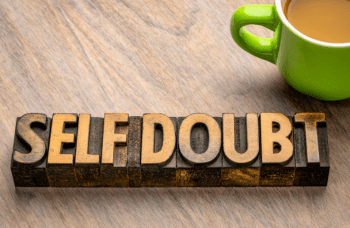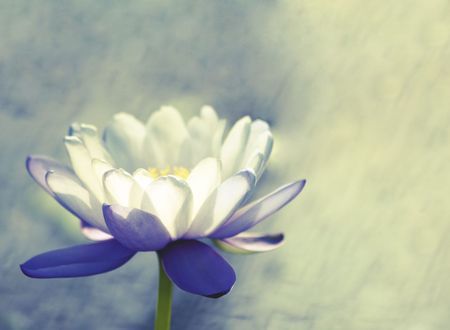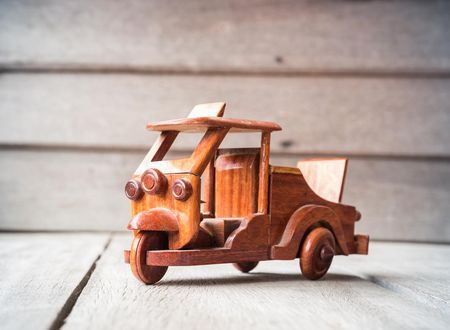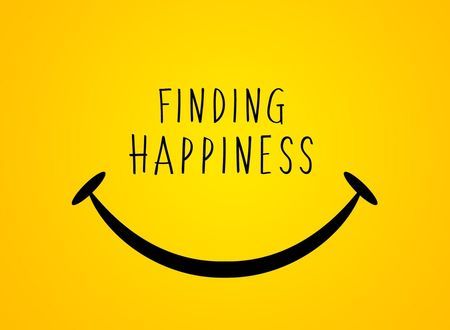“I’m scared every time I go into the ring, but it’s how you handle it. What you have to do is plant your feet, bite down on your mouthpiece and say, ‘Let’s go.’ ” These are the words of Mike Tyson. To think about it, that’s what it boils down to: ‘Let’s go.’ Action is the most potent antidote to fear.
If you look around, you’ll discover that most people spend their entire lives in fear. Many are plagued with the fear of loss, of rejection, of failure, some also have the fear of getting old, but this is not what I’m talking about. I’ve observed there’s a fear that easily dwarfs all these put together. And, no, I don’t think that the fear of death is the greatest fear, it may be the most inevitable but we don’t live our lives constantly worrying about death. Do we? Sooner or later, everyone accepts it.
In fact, I once read an interview by a doctor who worked in a hospice. He said what amazed him the most was that in his career spanning 40 years, he never saw fear or struggle in the eyes of a terminally ill patient. They lived in acceptance and their faces had the peace and glow of a sleeping child, especially in their final moments.
The base fear I’m alluding to is not instinctive, it’s not innate, we are not born with it, it’s something we learn, subtly, steadily, slowly. It is so powerful that over a period of time it becomes a part of our nature. If life was a language and each type of fear was a letter, the one I’m referring to would be the alphabet — it contains all other fears.
It’s the fear of happiness. Yes, that’s our primary fear.
From the moment you are born, you are weighed on a scale of comparison. Teachers, parents, preachers, relatives, peers, friends, society — sometimes with all the good intentions — constantly remind you of your shortcomings. We are eternally analyzing ourselves not against our own progress but against the capabilities of others.
He dances better than I do, she’s more intelligent, he’s stronger, she’s prettier, he’s richer and so forth. This comparison is rarely inspiring and mostly demeaning. It makes you feel you belong to the lowest rung of the ladder. We live in a world where not effort but attainment is rewarded.
If you score second place and miss the first by the tiniest possible fraction, it’s not good enough. You are unlikely to be congratulated for your individual performance, instead you are consoled that at least you got second place. This comparison makes you feel that you are not quite there yet. That your effort wasn’t good enough. And this has an incriminating effect on our well-being.
With the passage of time, this feeling — I’m not good enough — prepares a perennial battleground of two opposing forces, fear and self-affirmation. On the one hand, we try to console ourselves by way of self-affirmation that I can’t be that bad, at least I got second place, I deserve some happiness too. It makes us touchy and it makes us edgy, we become averse to even constructive criticism and put up a wall of defense to protect ourselves, effectively shutting out many good things in the process.
On the other hand, the fear of happiness makes us feel I can’t possibly attain the success I used to dream of, I can’t be worthy of such pleasures and joy, of so much love and care. When good things do happen, we think it’s luck, or plain fluke, that we couldn’t possibly deserve this goodness. This is the fear of happiness. And, it stops most people from chasing their dreams, it’s the obstacle to realizing their full potential because after being put down for so long, they begin to believe that they are not the candidates for happiness.
Don’t let this happen to you. It’s normal to have disagreements, it’s fine to even have arguments sometimes, but it’s not okay to be dismissed. If you want to rise above the fear of happiness, so you may live your life to the fullest, don’t allow anyone to belittle you. And if they do, they shouldn’t be a part of your life. Distance yourself. Find a way.
The fear of happiness comes from not believing in yourself, it comes from taking yourself for granted. And, if you allow others to treat you like a dumping ground or to take you for granted then let me tell you, they will take you for granted. Observe the successful and happy people around you, and you’ll discover a common trait: they treat themselves with respect. They are not afraid of being happy, and you won’t be either if you learn to love yourself. Very few people enjoy happiness, most are afraid of losing it, and in that fear, they almost always lose it.
A priest was waiting in line at a serviced gas station just before a long weekend. The attendants were trying their best but there were just too many cars. Finally, his turn came.
“Reverend,” said the attendant, “I’m sorry about the wait. It seems as if everyone waits until the last minute to get ready for a long trip.”
“Tell me about it,” the priest quipped. “It’s the same in my business.”
What are you waiting for? Life will go on, time will continue to tick, if you don’t put aside your fear of happiness now, you may never muster the courage to do it later. Gandhi once said, “The enemy is fear. We think it is hate; but, it is fear.” If you let the enemy walk over you, they will do it. Fear instills a feeling of contempt and hatred, what’s worse, fear makes you either obsessively self-conscious or obnoxiously self-critical; either way, it makes you feel inadequate.
You deserve every ounce of happiness life has to offer. Why? Because the fact that you are breathing and living means Nature wants you. The universe wants you. Everyone makes mistakes, everyone screws up at some point, it doesn’t mean you are a disaster. Let not anyone drill fear into you by making you feel any less. “Let him who is without sin cast the first stone.” Don’t be afraid of your immense potential, your happiness; go claim it.
Bite down on your mouthpiece and say, ‘Let’s go.’
Peace.
Swami
Editorial Note
Self-doubt is the greatest killer of ambition. As a famous Sylvia Plath quote goes, “The worst enemy to creativity is self-doubt.”
A tired bird landed on a branch. It rested, enjoying the view from the branch and the protection it offered from dangerous animals. Just as it became used to the branch and the support and safety it offered, a strong wind started blowing. The tree swayed with such intensity that it seemed the branch would snap in half.
But the bird was not worried, for it knew two important truths.
The first truth: even without the branch, it could fly and remain safe through the power of its own two wings.
The second truth: it also knew that there were many other branches upon which it could temporarily rest.
(Credit)
There is perhaps no better snippet that captures the antidote to self-doubt: faith in oneself and taking shelter in the light of others.
Course
Art of Meditation
Free yourself from suffering and live life to the fullest. Learn the yogic technique of meditation in 4 days (and master it over a lifetime)
What causes self-doubt, in the first place? And how to deal with self-doubt that’s crippling? The FAQs below answer this and more, including the one-stop remedy that tells us how to overcome self-doubt – belief.
For, as Mahatma Gandhi said, “Man often becomes what he believes himself to be.”
1. While dealing with self-doubt, what are the 4 important questions to ask oneself?

The best way to overcome fear-based self-doubt is to write down your answers to the following questions:
- Why do I want to change?
- Am I ready to embrace change?
- What’s the worst that can happen?
- Do I feel competent enough to handle the worst?
Reflect on your answers, prioritize, and act accordingly.
When you experience self-doubt, get to its root to remove it. Do not just ignore it, especially if it persists. It could just be your fear or it may well be your intuitive faculty guiding you. You will only know the truth upon self-reflection.
And I reiterate, the most potent question you can ask yourself to overcome self-doubt is: What is the worst that can happen?
As author P.C Cast said, “I seek strength not to be greater than others but to fight my greatest enemy, the doubts within myself.”
Continue reading How to Deal with Self-Doubt, for the three categories of self-doubt.
2. How do I stop lying and doubting myself?
Self-doubt is a classic symptom of not keeping one’s word to oneself. In other words, you are lying to yourself. But what is the origin of a lie?

Upon deep examination, you will find that lying is a complex act, a complicated aspect of one’s personality, it is more than a habit, almost a natural human trait.
Here are the three primary causes of telling lies, they are not mutually exclusive:
1. To hide information
2. A matter of habit
3. To gain attention
If you are the one telling lies, just remember the price is paid in peace and bliss. Truth is bold by nature, and lie, arrogant. The former instills courage, the latter, fear. Truth stems from inner strength, and lie, from the inability to gain such strength.
Discover your own truth; it will set you free.
Keep reading Why People Lie and delve deeper into the three causes of lying.
3. How do I develop a sense of self-esteem?

When you feel what you do is important, if you believe in yourself, you gain great inner strength. Believing your work is significant, however small, feeds your self-esteem, such morale boosts your confidence, and confidence, a sense of self-importance, in turn, is a critical success factor in attaining your goals, be they spiritual endeavors or material pursuits.
How important you feel about yourself is greatly affected by three factors:
- First, how you see yourself,
- Second, how successful you are in what you do,
- And third, how others see you.
If you sincerely work towards what matters to you, the first one gets a boost automatically. As one and two improve, the third one ceases to matter after a while.
Are You Important? The answer to this question is how to deal with self-doubt.
4. What are the 2 fundamental causes of self-doubt?
As the British Novelist, Iris Murdoch said, “Man is a creature who makes pictures of himself and then comes to resemble the picture.”
Somewhere, we are all tied by the rope of our desires and beliefs. How far we can venture out is limited to the length of the lasso. Truth be told, we only need to snip this rope to set ourselves free.
This brings me to the crux of the matter: what does it take to liberate oneself? In my humble view, there are only two things needed to get past your limitations:
Habits: We may be whoever or whatever, we remain creatures of our habits. You can’t redefine yourself unless you make a conscious and mindful effort to break the habits that define you. Your actions fill your day and your days make up your life. It’s as simple as that.
Excessive or negative thinking, being lazy or a workaholic, these are just habits.
Perspective: Most of what gives us grief stems from our perspective. In fact, grief is a perspective in its own right. Pain and painful incidents can be real, suffering, though, is mostly how I have chosen to analyze and accept my pain. Change your perspective and everything changes.
So, how to deal with self-doubt and other such negative habits? Find out in The Bondage of Beliefs.
5. How do I believe in myself even if nobody else does?
Our dreams often become conditioned as we grow up. We grapple with feelings of insecurity, self-doubt and fear. How do we put it all aside and work towards what we want without giving up? The video below tells us how.

Timeline:
- 0:32: Our dreams as children vs. our dreams as adults
- 3:09: The story of Om Swami’s drawing classes
- 4:44: Never give anybody the power to break your dream
- 5:59: Parampal’s painting skills
- 10:12: Believe in yourself realistically
A GOOD STORY
There were four members in a household. Everybody, Somebody, Anybody and Nobody. A bill was overdue. Everybody thought Somebody would do it. Anybody could have done it but Nobody did it.
Don't leave empty-handed, consider contributing.It's a good thing to do today.









Comments & Discussion
18 COMMENTS
Please login to read members' comments and participate in the discussion.